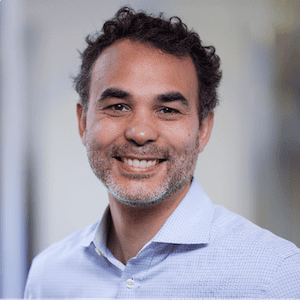-
Energy Poverty is Not Gender Blind: How Companies, Funders and Policymakers Can Empower Female Energy Consumers Across Africa
While both men and women in sub-Saharan Africa lack access to electricity and clean energy technologies, women pay a bigger price for this lack of access in nearly every imaginable way. Mutale Ngaba, Katie Brauer, Nathalie Gogue-Ebo and Duda Slawek at Open Capital argue that this crucial aspect of the energy access conversation is often overlooked. They explore the gender inequities in energy poverty, and share learnings from Open Capital's work that can guide the efforts of energy companies, funders and policymakers to put women’s needs at the center of energy access efforts in the region.
- Categories
- Energy, Environment, Technology
-
Leveraging Market Systems Development for Women’s Economic Empowerment: Four Tools for Designing Programs That Promote a Gender-Inclusive Economy
Market Systems Development (MSD) interventions are a promising way to boost women's economic independence in emerging markets. But as Sarah Bove, Teresa Oliveira and Julieta Ocampo at TechnoServe explain, since most MSD programs haven’t specifically targeted women, there's little evidence on how this approach can address their exclusion from key sectors. They offer insights from TechnoServe's Women in Business MSD initiative in Mozambique, sharing a set of tools that can be used by other MSD programs to maximize women’s economic empowerment.
- Categories
- Social Enterprise
-
Aligning Empowerment with Profitability: Three Business Practices That Support Both Women and the Bottom Line
Women are more career-focused than ever, but their representation in global business leadership is not keeping pace. Verónica Lawson Vilches at The Word on Record argues that empowering women in the workplace shouldn’t be viewed merely as a social goal. She highlights three business practices at Girl Power Talk, an India-based social enterprise that provides women and other young people with job skills and work opportunities, to show how efforts to boost women's empowerment can also give businesses a competitive edge.
- Categories
- Education, Social Enterprise
-
Making ICT4D Green: Three Focus Areas for Improving the Environmental Impact of the Information and Communication Technology for Development Sector
The global digital transformation is generating many positive impacts, and digital technologies have become essential tools for climate and environmental action. But according to Nora Lindström at Catholic Relief Services, the growing use of digital technology is also causing some significant environmental challenges — and the “Information and Communication Technology for Development (ICT4D)” sector must address them. She discusses several ways to increase the tech industry's sustainability, focusing on three key elements of ICT: generative AI, broadband access and electronic equipment.
- Categories
- Energy, Environment, Technology, Telecommunications, WASH
-
An African Approach to Online Education: An Innovative Platform Aims to Prepare the Continent’s Youth for the Jobs of the Future
By 2050, one in every four individuals in the world will be African. In response to this demographic shift, it's essential to ensure that young Africans possess the necessary skills to compete in the global job market. But according to Adewale Yusuf at AltSchool Africa, conventional educational approaches have failed to meet these students' unique needs. He explains how AltSchool Africa developed an online platform based on African approaches to learning, and how the platform provides young students with the job skills they need to succeed in an increasingly global economy.
- Categories
- Education, Technology
-
Reimagining Enterprise Support and Advisory Services for Energy SMEs: Five Principles for Boosting their Impact in the Global South
Over 675 million people still lack access to electricity (as of 2021) — over 80% of whom live in sub-Saharan Africa. As Godfrey Simiyu Katiambo at Mercy Corps Energy4Impact explains, bridging this energy gap in an equitable, sustainable manner will require not only a massive increase in funding, but also targeted support for the small-and-medium enterprises (SMEs) that are advancing clean energy access in underserved communities. He explores the growing need for enterprise support and technical and business advisory services that cater to these SMEs' unique challenges, and proposes five ways to boost the impact of these services.
- Categories
- Energy, Environment
-
The Next Frontier in Inclusive Fintech: The Value of Client-Centric Impact Measurement
Fintech is projected to be a $1.5 trillion industry by 2030, and Latin America and the Caribbean is a crucial focal point for the sector. But Carla Grados-Villamar at 60 Decibels points out that while fintechs are boosting financial access in the region, this does not guarantee improved living standards. She discusses how 60 Decibels has helped Galgo, a Chile-based fintech that facilitates financial access through motorcycle loans, to better understand its customers' experiences — and explores how this learning process reveals the importance of client-centric impact measurement in the broader fintech sector.
- Categories
- Finance, Transportation
-
Leveraging Artificial Intelligence for Cybersecurity in Africa: How AI Can Help Ensure the Continent’s Digital Safety
Cyberattacks are increasing globally, and Africa experiences the highest volume in the world. According to Lanre Ogungbe at Prembly, this has resulted in significant repercussions for businesses and entire economies. He explores how cybercriminals target Africa’s unique vulnerabilities, and how artificial intelligence (AI) is poised to transform the scale and scope of both cybercrime and the cybersecurity efforts that aim to address it on the continent.
- Categories
- Technology










